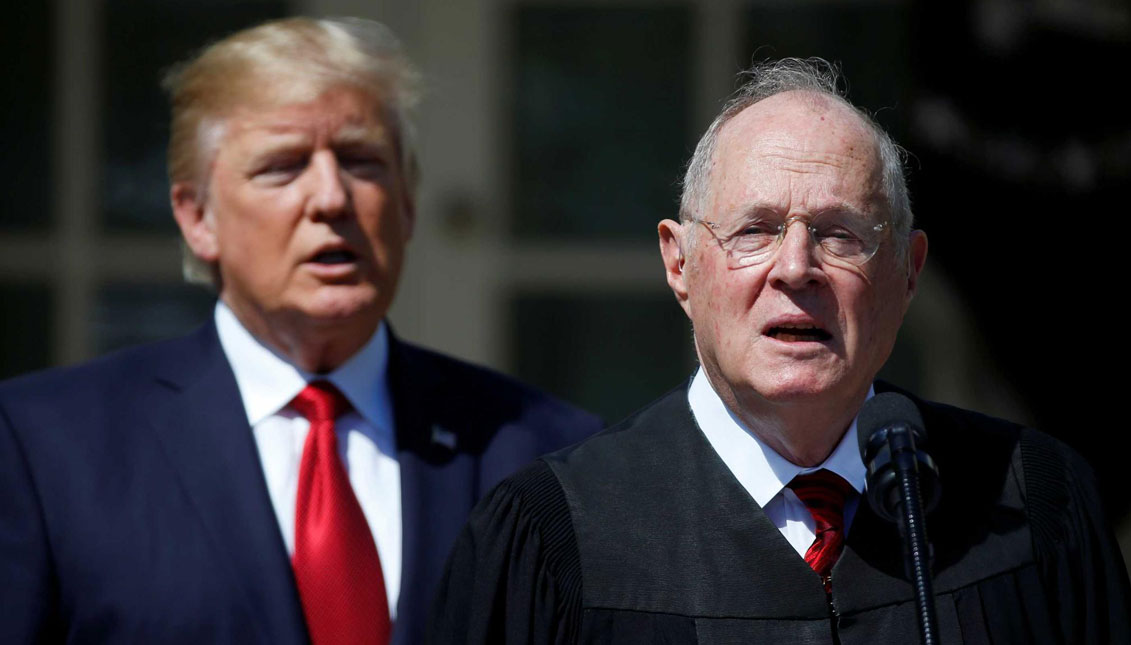
The Supreme Court will decide the extent of Trump's immunity
Will the president finally be above the law?
The most frequent question during Donald Trump's administration has been "Can he really do that?" And is that, since the Watergate scandal, we have never questioned the separation of powers as we have for the last three years.
That's why the Supreme Court's ruling in three key cases that will be heard next week could change the way America is run forever.
As reported by Vox, the cases of Trump vs. Mazars, Trump vs. Deutsche Bank and Trump vs. Vance that will be heard by the highest judicial body next week are "maddening" because, while under any "normal" circumstances the president should lose, there is a possibility that the results will surprise us.
The Mazars and Deutsche Bank cases are part of the president's attempt to prevent Congress from accessing his tax records, and it has been a battle for most of his administration.
The Vance case, on the other hand, involves the investigation of alleged criminal activity by the Trump Organization, which would also include a full review of their tax returns.
"In all three cases, Trump's lawyers have made extraordinarily expansive claims that the president is beyond the reach of investigators," Vox explains. "Indeed, in Vance, Trump lawyer William Consovoy literally told a federal appellate judge that Trump is immune from criminal investigation, at least while he’s in the office if he were to shoot someone in the middle of Manhattan’s Fifth Avenue.”
Again, under "normal" circumstances, logic would tell us that Trump has everything to lose in both cases, as several federal courts have affirmed. However, the fact that his administration has taken it upon itself to entrench radical conservatism in all three spheres of power, with a tribalist Republican Senate and a conservative-majority Supreme Court, could have a catastrophic outcome for American democracy.
RELATED CONTENT
The decision the body will have to make when it hears arguments next week must either reject or confirm the president's claim that "the chief executive is immune from various forms of investigation.”
"At stake in these cases is the public’s ability to know about, and seek accountability for, misconduct," Jeannie Suk Gersen, a professor at Harvard Law School explains in her column for the New Yorker. "But, more important, they represent a gut check for our system of separation of powers."
The cases have roots that reach into government ethics, money laundering, and foreign influence in the national election process, Suk Gersen explains, all arguments that were dismantled the moment the Senate cleared Trump of any blame during his impeachment.
It was precisely the administration's refusal to offer evidence or any collaboration with the House of Representatives that gave the Senate the final argument.
In other words, this is a game set in the midst of the monopolization of power.
"Now the separation of powers is in danger of being reduced to a nauseating merry-go-round, in which neither Congress nor the Supreme Court can check the President because each says that the other should do it," concludes Suk Gersen. "Solving this dilemma is now thrust on the Court.”










LEAVE A COMMENT: